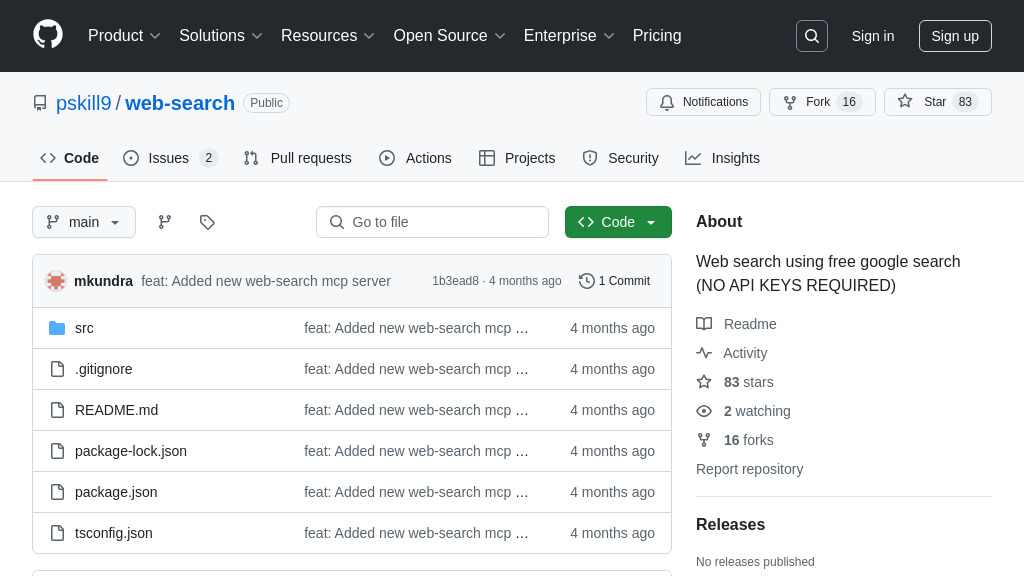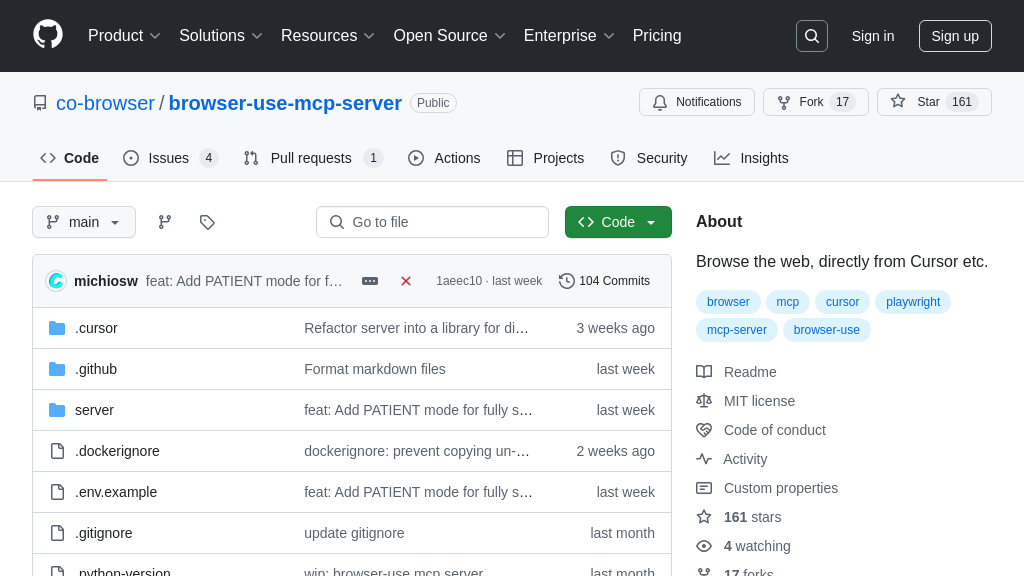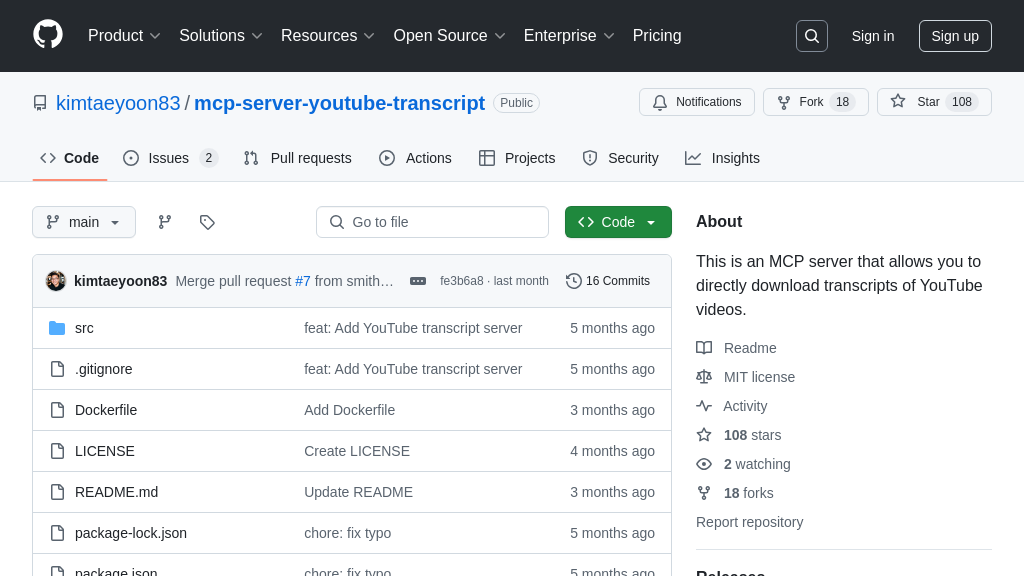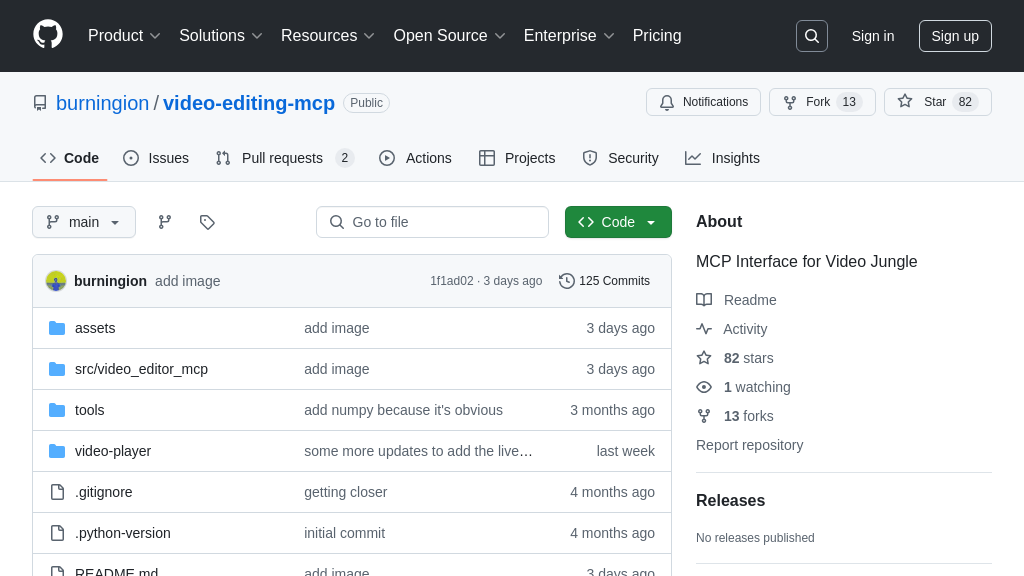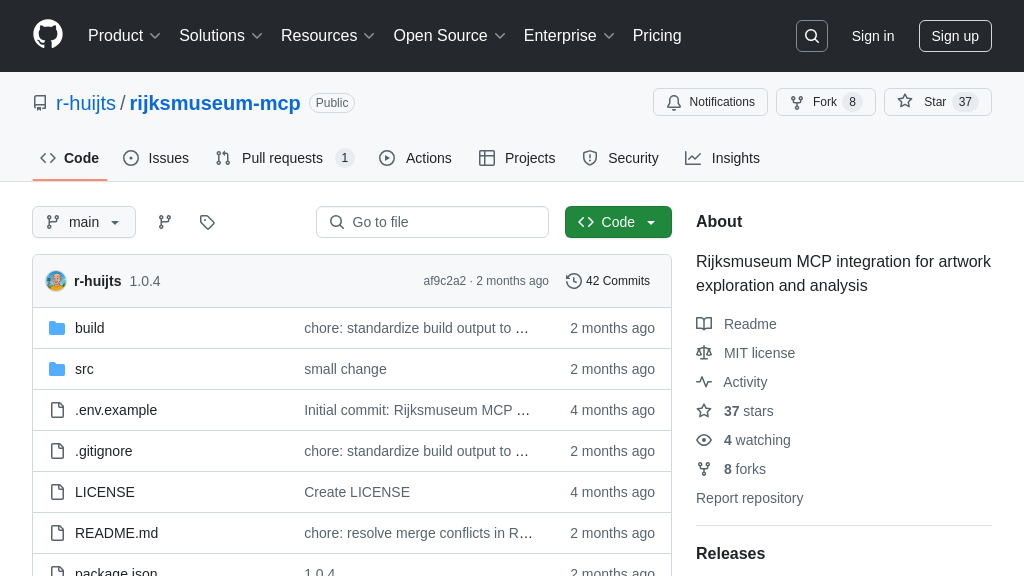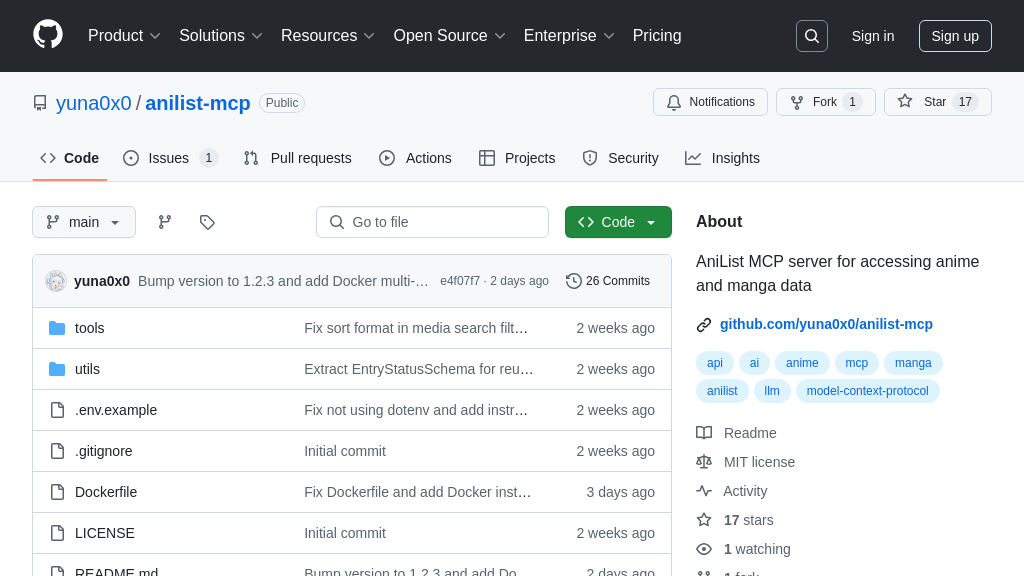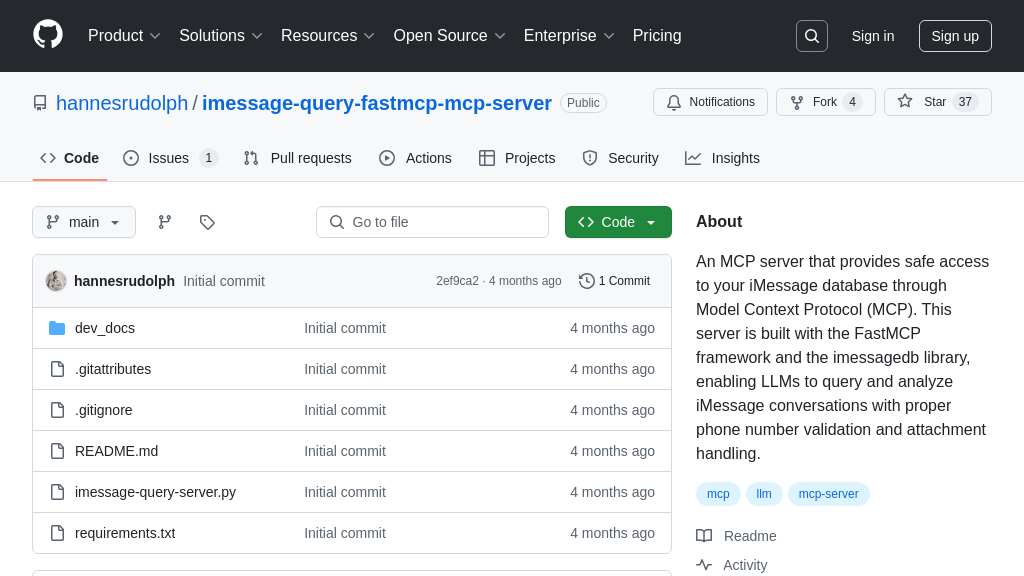arxiv-mcp-server
ArXiv MCP Server: Connect AI models to arXiv for seamless paper search and analysis via MCP.
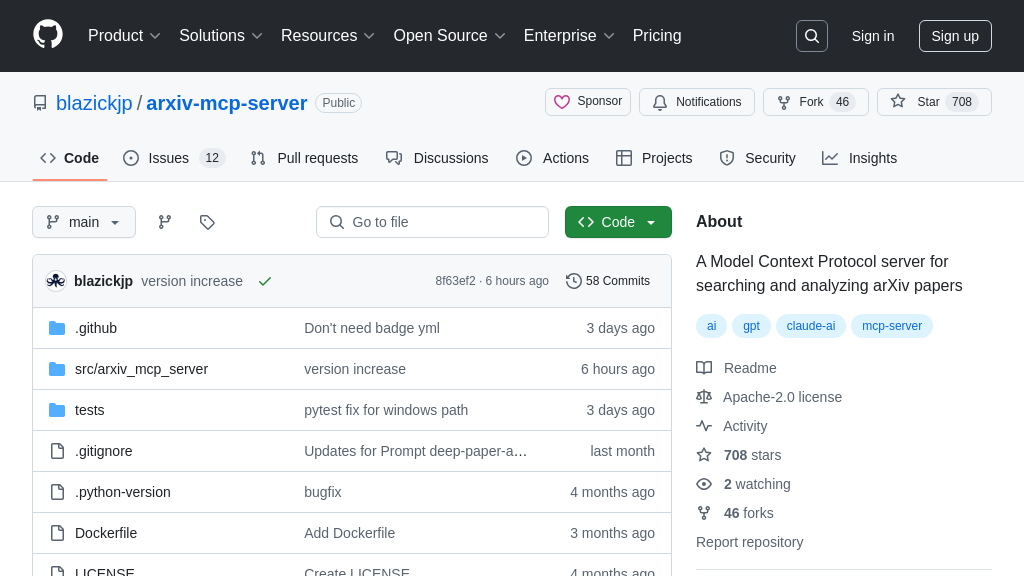
arxiv-mcp-server Solution Overview
The ArXiv MCP Server is a valuable server solution within the MCP ecosystem, designed to empower AI models with seamless access to arXiv's vast research repository. It acts as a bridge, enabling AI assistants to programmatically search for, access, and analyze academic papers. Key features include paper search with filtering, direct paper download, and local storage for efficient access.
This server addresses the challenge of integrating AI models with external knowledge sources, allowing them to stay up-to-date with the latest research. By providing tools for searching, downloading, and reading papers, it streamlines research workflows and enhances the analytical capabilities of AI. The server also offers specialized prompts, such as the "deep-paper-analysis" prompt, to facilitate in-depth analysis of academic papers. Installation is straightforward via Smithery or manual setup, and integration with MCP clients is simple, requiring only a configuration update. This empowers developers to quickly equip their AI models with the ability to explore and understand the world of scientific research.
arxiv-mcp-server Key Capabilities
ArXiv Paper Search via MCP
The arxiv-mcp-server enables AI models to directly search the ArXiv repository through a standardized MCP interface. This functionality allows models to find relevant research papers based on keywords, date ranges, and categories. The server translates the AI model's search request into an ArXiv API query, retrieves the results, and returns them to the model in a structured format. This eliminates the need for the AI model to implement its own ArXiv search logic, simplifying development and ensuring consistent search behavior.
For example, an AI assistant tasked with summarizing recent advancements in "transformer architecture" can use this feature to find relevant papers published after January 1, 2023, in the "cs.AI" and "cs.LG" categories. The AI model sends a search_papers tool call to the arxiv-mcp-server, specifying the query and filters. The server then returns a list of matching papers with metadata such as title, authors, and abstract. This allows the AI to focus on processing the content of the papers rather than the complexities of searching for them. The server uses the ArXiv API to perform the search and handles pagination and rate limiting.
Programmatic Paper Download & Access
This feature allows AI models to programmatically download and access the full content of ArXiv papers via the MCP. Once a paper is identified (e.g., through the search functionality), the AI model can use the download_paper tool to retrieve the paper's PDF content. The server stores the downloaded papers locally, enabling faster access in subsequent requests. The read_paper tool then provides access to the content of the downloaded paper, likely extracting the text from the PDF.
Consider an AI model designed to perform in-depth analysis of specific research papers. The model can use the download_paper tool, providing the ArXiv ID of the paper (e.g., "2401.12345"). The server downloads the paper and stores it locally. Subsequently, the AI model can use the read_paper tool to access the paper's content as text, which can then be used for tasks such as summarization, keyword extraction, or sentiment analysis. This eliminates the need for the AI model to handle PDF parsing and local storage, streamlining the research workflow. The server likely uses a PDF parsing library to extract text content and manages local storage using the ARXIV_STORAGE_PATH configuration.
Pre-built Paper Analysis Prompt
The arxiv-mcp-server offers a pre-built "deep-paper-analysis" prompt that streamlines the process of analyzing academic papers. This prompt encapsulates a comprehensive workflow that leverages the server's other tools (search, download, read) to perform a detailed analysis of a given paper. The prompt provides structured instructions for the AI model, guiding it through the steps of summarizing the paper, identifying its research context, analyzing its methodology, evaluating its results, and assessing its implications and future directions.
Imagine a researcher using an AI assistant to quickly understand the key findings of a new research paper. Instead of manually searching for the paper, downloading it, and then prompting the AI to analyze it, the researcher can simply provide the paper's ArXiv ID to the deep-paper-analysis prompt. The server then orchestrates the entire analysis process, using the download_paper and read_paper tools to retrieve the paper's content and then guiding the AI model through a structured analysis workflow. The final result is a comprehensive summary and analysis of the paper, saving the researcher significant time and effort. This prompt demonstrates the power of combining multiple MCP tools into a higher-level, task-specific workflow. The prompt likely uses a combination of tool calls and natural language instructions to guide the AI model through the analysis process.

